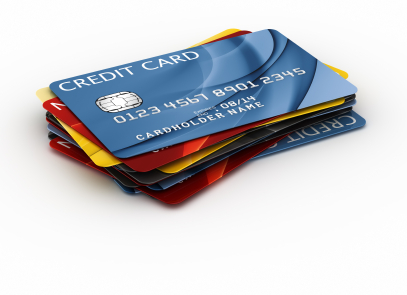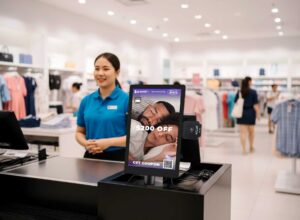
The past year has been punctuated with several notable data breaches at major retailers, starting with the Target incident last year and leading into the more recent theft of credit and debit card information at Home Depot. Even more recently, CBS Boston reported New England grocery brands Shaws and Star Market found the sensitive information of their customers could be at risk earlier this week.
Customers are becoming increasingly concerned about the safety of their payment card data and their own personal information. As more of these stories hit the headlines, people have become quite hesitant to even use their cards as for payment. Security has become a common talking point within the payment industry and as a result – point-of-sale hardware and software developers are placing a new emphasis on incorporating security features, while retailers and other end-users are looking for upgrades that can help them better protect customers.
But just how worrying is the prospect of credit card and identify theft to the average American? A study conducted by Unisys makes it quite apparent that people are very afraid of having their sensitive information stolen.
Between terrorism and data theft, people prefer terrorism
The Unisys study asked Americans to list what they are most afraid of. Respondents came up with eight common responses – financial difficulty, personal safety threats, health epidemics, identity theft, terrorism, banking security, computer security and payment card fraud.
The top two concerns on the list, however, were payment card fraud and identity theft, cited by 59 percent and 57 percent of respondents, respectively. That means the average American is more afraid of having their sensitive information stolen than terrorism, financial difficulty and health epidemics.
Abuse of credit card data showed a 7 percent increase in 2014 compared to 2013, which may be due to some of the reported retail breaches. People are worried that their credit and debit card data will fall into the hands of the wrong people, which can lead to numerous other problems down the line. The fear of someone gaining unauthorized access to their personal information was a very real concern.
Whether people should actually be that concerned about payment security is up for debate, but there is no denying that the survey results make it painfully clear that Americans have no tolerance for gaps in security measures. Even a singular breach can be devastating for merchants and could affect the customer-brand relationship for years to come.
The Unisys report found that 59 percent of Americans said that a security breach involving their personal information or credit card data would make them less likely to do business with the targeted company in the future, regardless of whether it is a retailer, restaurant, bank or any other organization.
“Security threats against enterprises have grown exponentially – in size, scope and sophistication,” the Unisys report concluded. “While cloud computing, BYOD and social media are changing the rules of the game for enterprises, they have intensified security challenges for CIOs and CSOs like never before. Today’s traditional security is proving ineffective against advanced persistent attacks on corporate networks via the Internet – ranging from data theft to phishing attacks, from breach of data to carefully-planned ‘denial of service’ attacks.”
Leveraging the tools and technology to prevent data theft
Everyone involved in the payments industry, ranging from POS developers to their merchant customers, needs to carefully consider the steps they’re taking to protect customer data. This may involve upgrading POS solutions to ensure PA-DSS/PCI Compliance and making use of the latest tokenization/encryption technology to secure cardholder data.



